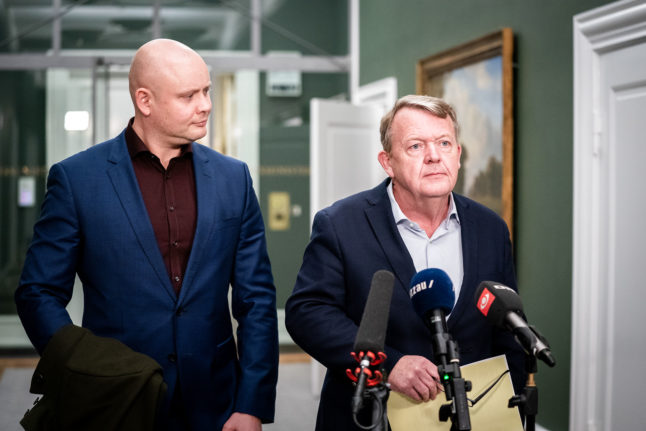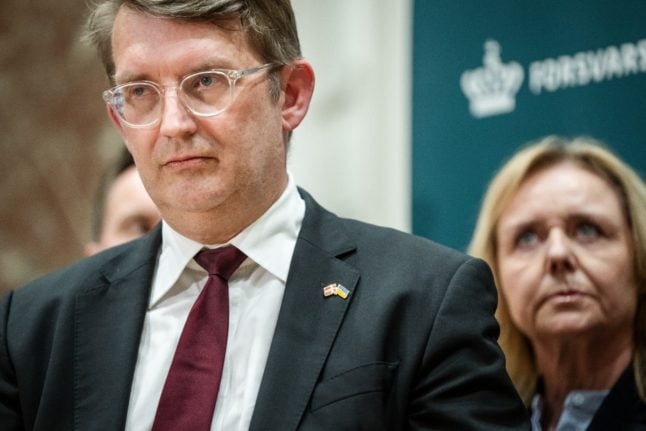Rasmussen commented on the potential outcome after talks on Thursday, which focused on climate, environment and conversion to green energy.
“That would actually be a majority government. It shouldn’t be much smaller if we want to have a majority, but this would be an excellent basis,” he said.
READ ALSO: Have talks to form new Danish government gone quiet?
Rasmussen is in favour of a centre coalition involving parties from the traditionally opposing ‘red’ and ‘blue’ blocs or left and right wings.
A government including the Social Democrats, led by incumbent Prime Minister Mette Frederiksen, and the Liberals (Venstre), led by Jakob Ellemann-Jensen, would fit with this.
While Frederiksen also wants to work across the centre, the Liberals rejected such a coalition during the election campaign, saying they wanted a more conventional ‘blue bloc’ or conservative government.
Ellemann-Jensen now appears to be coming under pressure from his own party and other conservative parties to reconfirm his position.
That comes after suggestions he could be willing to work with Frederiksen after previously saying he “didn’t trust” the incumbent PM as a result of the 2020 ‘mink scandal’ for which her government was strongly criticised and received official rebukes.
A coalition between the two parties and Rasmussen’s Moderates – which have not declared alignment with either bloc or specified a preferred PM – would have 86 seats.
That would give a one-seat majority in the 179-seat parliament if the four North Atlantic mandates from Greenland and the Faroe Islands are not included in the calculation. The North Atlantic mandates usually fall 3:1 in favour of the red bloc.
The three parties took the three largest vote shares in the November 1st election.
However, an agreement between the parties does not appear to be particularly close.
Both Ellemann-Jensen and Rasmussen have described the current talks as being more informal in nature than full negotiations.
A national congress in the Liberal party this weekend could help the party to form consensus over whether to change its approach to a potential government with Frederiksen, according to Rasmussen.



 Please whitelist us to continue reading.
Please whitelist us to continue reading.
Member comments